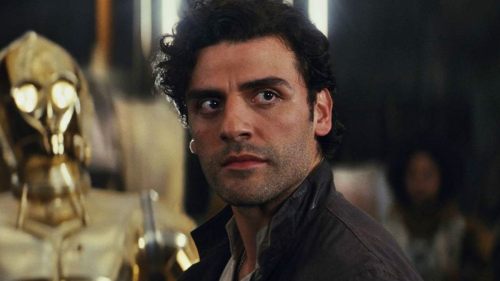OPERATION FINALE Review: My Dinner With Adolf
Any film that features Adolf Eichmann as a principal character, particularly one coming out in this political climate, is going to be fraught with representational issues. The mind behind the Nazis' Final Solution, the overseer of the murder of millions, is an unquestionably monstrous individual, but the question for the director, writer, and performer in a dramatic piece that attempts to deconstruct such an individual is how far to go in demonstrating the inherent humanity of such a monster. Operation Finale's director Chris Weitz is a competent journeyman, and freshman screenwriter Matthew Orton seems to have a firm grasp on writing emotionally complex characters, but the absolute brunt to Eichmann's portrayal falls on Ben Kingsley in a performance seemingly designed for awards attention but is outside the realm of how most good people can comfortably think of Nazis. This is perhaps part of the film's point, but that leaves one to question whether that's a point worth making.
If you're unfamiliar with Operation Finale, it was a 1960 Israeli operation by the Mossad with the goal to abduct Eichmann from his refuge in Buenos Aires to force him to stand trial for his crimes against the Jewish people. The operation was led by Peter Malkin, here portrayed by Oscar Isaac, and it hinged on the team's ability to convince Eichmann to sign a document stating that he was surrendering himself willingly to Israeli custody, because otherwise they would be violating Argentinean sovereignty by abducting a citizen of the country, in particular one who was of strategic importance to a growing fascist regime. So the crux of the film lies in conversations between Malkin and Eichmann, wherein Malkin must appeal to the ethics of a man who was directly responsible for millions of deaths, including those of people Malkin and his associates were close to.
As an acting exercise, there's no question that Operation Finale has a lot of talent on display. The supporting cast includes Mélanie Laurent, Lior Raz, Joe Alwyn, and Nick Kroll (in a surprisingly committed supporting role almost entirely devoid of Kroll's usual comic charms), and on the whole the cast invests humanity and character into their fairly procedural roles so as to make them memorable in temperament if not necessarily in name. But the stars of this two-hander are Isaac and Kingsley, and it's when you get these two in a room together that the film comes most alive. Isaac proves once again how much of a natural movie star he is, holding a classical stoicism that isn't afraid to occasionally crack wise but never feels overtly theatrical. Peter Malkin is a solemn and tortured individual, but Isaac recognizes that a person's traumas can't define the entirety of their personality, so he informs that solemnity with glimmers of a personality that might have once been much more carefree.
But here we are, back on Ben Kingsley as Eichmann. It is an excellent performance, conveying the rationale that Eichmann famously used to justify his war crimes – namely that he was a soldier following orders – but keeping his hatred of the Jews he slaughtered as an element that lingers just under the surface. Kingsley's Eichmann is composed and resigned to his fate as an apparent scapegoat for the Nazi Party, and the psychology of such a calculating monster is fascinating to deconstruct. Where Operation Finale stumbles is in the humanization of Eichmann as a man with a family whom he loves and wishes to protect, which is not so much an issue of historical accuracy as it is a focus meant to provoke a complex and dubious reaction from the audience. Eichmann's dialogue often raises issues of national fealty, familial duty, and love for one's offspring, and this is purposely set up to demonstrate a comparable humanity to his captors, Malkin in particular. But it toes a line of making Eichmann sympathetic in a way I don't believe Weitz or Orton entirely anticipated, as the implicit assumption that Eichmann is an irredeemable character leaves many of his appeals to humanity left unanswered, or at the very least undisputed or treated as distinct from his crimes. This was assuredly not the intent, but one can easily imagine Eichmann's modern counterpart watching this performance as dramatized evidence of unjust persecution at the hands of a sympathetically portrayed Jewish enemy, completely undermining the intended interpretation of Eichmann as a complex but undeniably evil person.
Of course, exposing Eichmann's humanity is part of Operation Finale's entire raison d'être, because it's in an appeal to that humanity that Malkin is able to make headway toward gaining Eichmann's cooperation. But exposing the human needs and desires of a man with monstrous capabilities is not quite the same thing as using that humanity to elicit sympathy, and I'm not entirely convinced Operation Finale understands that distinction. This is a very good film if you take its messaging about human nature and the prevailing power of empathy at face value. It's just troubling to think that those sympathetic to Eichmann's cause might also have something to glean from the experience.



